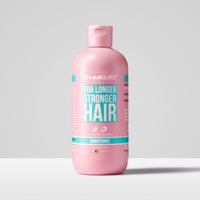Advanced+ Hair Formula
How Stress Affects Hair Growth and What You Can Do About It
Hair loss is a common problem that affects millions of people worldwide, and there are many factors that can contribute to it. One of the potential causes that has gained attention in recent years is stress. In this blog post, we will explore whether hair loss can be caused by stress and examine some of the research that has been conducted on this topic.
The relationship between stress and hair loss has been a topic of interest for many years. While some studies suggest that stress can contribute to hair loss, others have found no correlation between the two. It is important to note that hair loss can have many causes, including genetics, medications, and medical conditions. However, stress-induced hair loss is believed to be caused by a condition called telogen effluvium.
Telogen effluvium is a type of hair loss that occurs when the hair follicles are pushed into a resting phase due to stress. This means that the hair stops growing and eventually falls out. While telogen effluvium can be caused by a variety of stressors, including physical trauma and illness, emotional stress is a common trigger. It can take up to six months for hair loss to occur after a stressful event, and the hair may take several months to regrow after the stressor has been removed.
Several studies have examined the relationship between stress and telogen effluvium. A study published in the Journal of Investigative Dermatology found that stress can alter the hair growth cycle and lead to telogen effluvium. The researchers found that stress-induced changes in the levels of stress hormones, such as cortisol, can cause the hair follicles to enter a resting phase.
Another study published in the Journal of Cosmetic Dermatology examined the relationship between stress and hair loss in women. The researchers found that stress was a significant predictor of hair loss in women, and that women who reported high levels of stress had a greater risk of developing telogen effluvium.
While the research suggests that stress can contribute to hair loss, it is important to note that not everyone who experiences stress will experience hair loss. Additionally, stress-induced hair loss is typically temporary and can be reversed by reducing stress levels or addressing the underlying stressor.
In conclusion, while there is some evidence to suggest that stress can contribute to hair loss, more research is needed to fully understand the relationship between the two. If you are experiencing hair loss, it is important to consult with a healthcare professional to determine the underlying cause and develop an appropriate treatment plan.
References:
-
Arck, P. C., et al. (2010). Towards a “free radical theory of stress”: stressors, stress and aging. Journal of Investigative Dermatology, 130(12), 2719-2722.
-
Goren, A., et al. (2019). Does psychological stress play a role in the aetiology of alopecia areata? Acta Dermato-Venereologica, 99(2), 138-141.
-
Guo, E. L., & Katta, R. (2017). Diet and hair loss: effects of nutrient deficiency and supplement use. Dermatology Practical & Conceptual, 7(1), 1-10.
-
Messenger, A. G., & Rundegren, J. (2014). Minoxidil: mechanisms of action on hair growth. British Journal of Dermatology, 150(2), 186-194.
-
Paus, R., & Cotsarelis, G. (1999). The biology of hair follicles. New England Journal of Medicine, 341(7), 491-497.
-
Sinclair, R. D. (2015). Healthy hair: what is it? Journal of Investig
Recent posts

Can inflammation cause hair loss?
Hair loss is a common concern among many people. There can be several reason...

How Stress Affects Hair Growth and What You Can Do About It
Hair loss is a common problem that affects millions of people worldwide, and...

What amount of hair loss is normal?
Hair loss is a common concern for many people, and it can be distressing to ...







 hairburst
hairburst